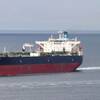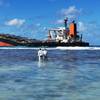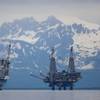The containership Alexander Maersk picked up 113 migrants after a request by the Maritime Rescue Coordination Centre in Rome to change the vessel’s course and assist in a Search andRescue operation in international waters on last Friday.
The commercial vessel is still awaiting instructions from government authorities to bring those rescued at sea to a place of safety.
Ships travelling in international waters are obligated to assist persons in distress under the Safety of Life at Sea (SOLAS) convention. Governments are also obligated under SOLAS to “ensure that masters of ships providing assistance by embarking persons in distress at sea are released from their obligations with minimum further deviation from the ships’ intended voyage.”
“Operators of commercial vessels are regularly called upon to assist persons at sea, and they respond willingly to their legal and humanitarian responsibilities,” said John Butler, President and CEO of the World Shipping Council.
John added: “However, commercial cargo vessels are not designed to carry large numbers of people, and that is why SOLAS also obligates governments to promptly provide a place of safety for the rescued persons.”
The migrant crisis in the Mediterranean is a reminder that all parties operating under SOLAS have a shared responsibility to bring persons stranded at sea to a place of safety on land as quickly as possible.
World Shipping Council members operate approximately 90 percent of the global liner ship capacity, providing approximately 400 regularly scheduled services linking the continents of the world. Collectively, these services transport about 60 percent of the value of global seaborne trade, and more than US$ 4 trillion worth of goods annually.










